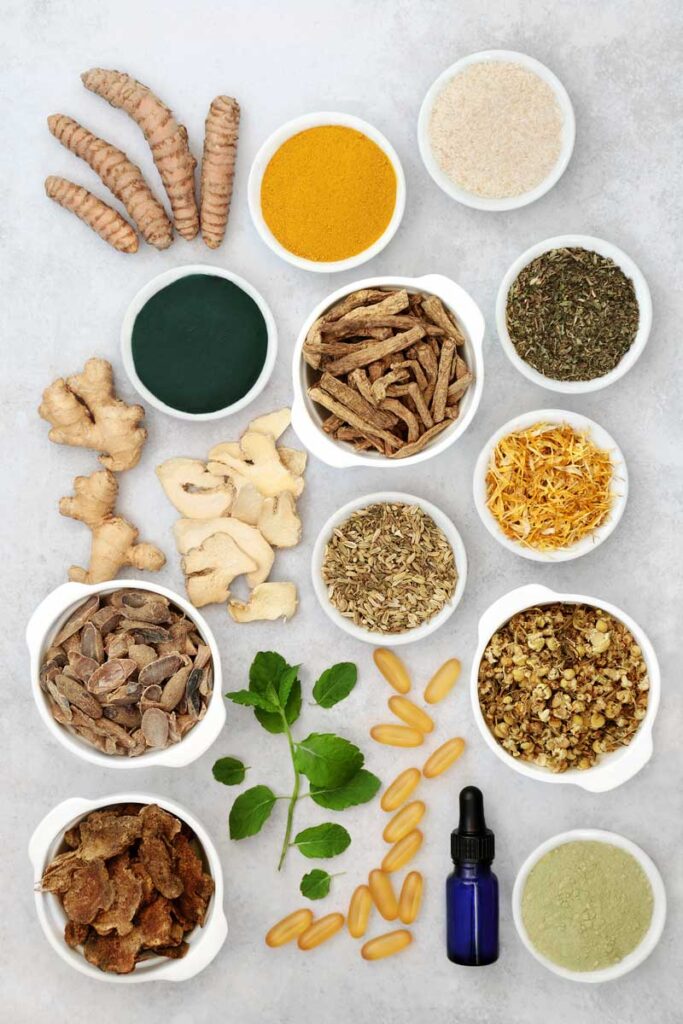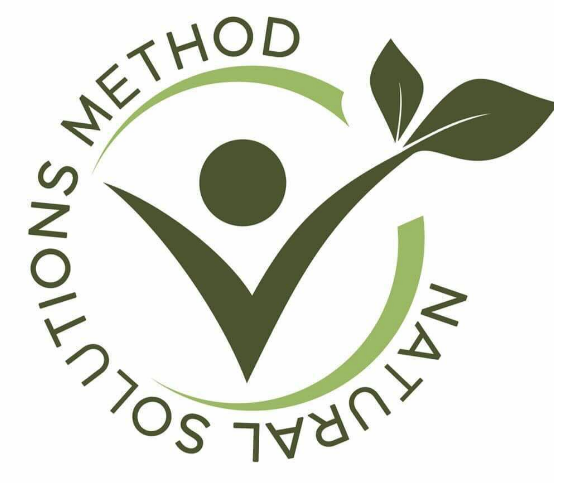Are you familiar with healing herbs?
A healing herb—otherwise known as a medicinal plant—is a plant that is either collected from the wild or intentionally grown for its medicinal or curative value.
Humans have used plants for thousands of years to treat ailments, pain, and disease.
Components of these medicinal plants—leaves, bark, stems, roots, seeds, oils, and flowers—are used to create herbal remedies and continue to be popular.
In one study, over one-third of Americans reported turning to herbal remedies to help treat various diseases and ailments.
Supporting your immune system and overall health can be done in a variety of ways and using natural solutions can be quite beneficial for many people.

These 10 herbal treatments are known to provide natural support for a variety of wellness goals.
p.s. affiliate links are to products I personally recommend.
- Ashwagandha has been used for thousands of years to boost energy levels, decrease anxiety and stress, and reduce pain and inflammation.
- Chamomile is a popular herbal remedy in the United States, commonly used to reduce anxiety and promote relaxation.
- Echinacea is a home remedy commonly used to shorten the duration of or prevent the common cold and flu.
- Garlic uses include preventing infection, lowering blood pressure, treating tuberculosis, colic, liver disease, intestinal worms, and reducing fevers.
- Ginger has been used as a remedy for common ailments, such as nausea, pain, and vomiting. Today, ginger has the distinction of being classified as an herb, food, and medicine.
- Ginkgo leaves have been used for thousands of years for medicinal benefits. These include treating bronchitis, asthma, chronic fatigue, and tinnitus (ringing in the ears).
- Ginseng has antioxidant, anti-inflammatory, anticancer, and antiviral properties making it a popular herb for medicinal use.
- Lavender promotes sleep, improves memory, relieves pain, and uplifts mood. In animal and human studies, lavender has been proven to have anticonvulsant, antioxidant, anti-inflammatory, and antimicrobial activities.
- Saint-John’s-Wort has been used for medicinal purposes for thousands of years and for various conditions, including insomnia, wound healing, depression, and kidney and lung ailments.
- Turmeric is one of the most widely studied herbs. It has antioxidant, anti-inflammatory, antibacterial, and anticancer properties. In Ayurveda and other traditional medicine systems, it is used for upper respiratory infections, the digestive system, and skin problems.
Many herbs have been used in traditional medicine throughout the world. They are popular as supplements, teas, essential oils, and in other preparations.
Now we do need to keep in mind that healing herbs are an alternative/complementary therapy. They may not be a replacement for specific treatments recommended by a healthcare professional.
It’s also important to remember that “natural” doesn’t automatically mean “safe” as some herbs may interact with prescription medications you are taking. It’s important to keep your healthcare professional informed when trying any herbal remedies if you take prescription medications.

